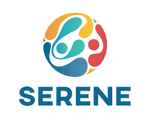description
The aim of the SERENE (Sustainable and Integrated Energy Systems in Local Communities) project is to develop and demonstrate sustainable, integrated, cost-effective and customer centric solutions for local communities. The idea is to integrate different energy system carriers and new renewable generation units in local communities, based on their social and technical status today, to meet their energy needs in the coming years. The users are involved in the changes of their local energy system and informed about different technical opportunities and business cases to make decisions about their participation. The researched energy systems involve different storage technologies (battery energy storages, heat storages, water storage-systems), demand response systems to enhance the flexibility of the systems (activating for instance electric vehicle charging stations and heat demand supplies), electric transportation systems like electrical vehicles or buses, heating system improvements using heat-pumps and integration of new renewable generation sources mainly in form of photo voltaic panels.
The SERENE project will establish demonstrators in local villages in three European countries - Denmark, The Netherlands and Poland. The experiences from the demonstration sites will be analysed and evaluated for replicability within Europe and world-wide. Technical benchmark models and solutions will be set up together with their business models, and it is evaluated how different legal aspects form the involved countries will affect the possibility for replication. Further, the needed user involvement and their interest to join are evaluated seen from both geographic, social, environmental and economic conditions and characteristics.
In particular, the University of Twente will investigate how citizen involvement can be improved in order to create 100% renewable energy on neighbourhood level, including using heat pumps, solar PV and smart grid technology to solve load balancing problems and to stimulate self-consumption of local renewable energy. In this way, the consumption of natural gas as a heat source in existing neighbourhoods can be phased out and dependency on the national grid and problems with local, low voltage grids can be avoided. The specific research objectives are to:
- Investigate 100% local renewable and balanced energy supply for individual buildings, neighbourhoods and the village using solar PV, storage, insulation, smart control and bio-energy sources.
- Develop, test and analyse a local smart grid to soft-island neighbourhoods.
- Developing methods and activities that contribute to municipal and regional energy transition awareness, knowledge and empowerment of citizens.
Involved partners next to the Decentral Energy Management research group:
- NL: faculty of Behavioural and Management Sciences (UT), Saxion University of Applied sciences, the Aardehuizen community in Olst, and technology provider Loqio.
- International: mentioned universities/institutes and ´local communities and companies in Denmark and Poland.
![]() Click on the LinkedIn logo to follow the SERENE page for regular updates!
Click on the LinkedIn logo to follow the SERENE page for regular updates!
Click on this link to view the official H2020 SERENE Project press release.

